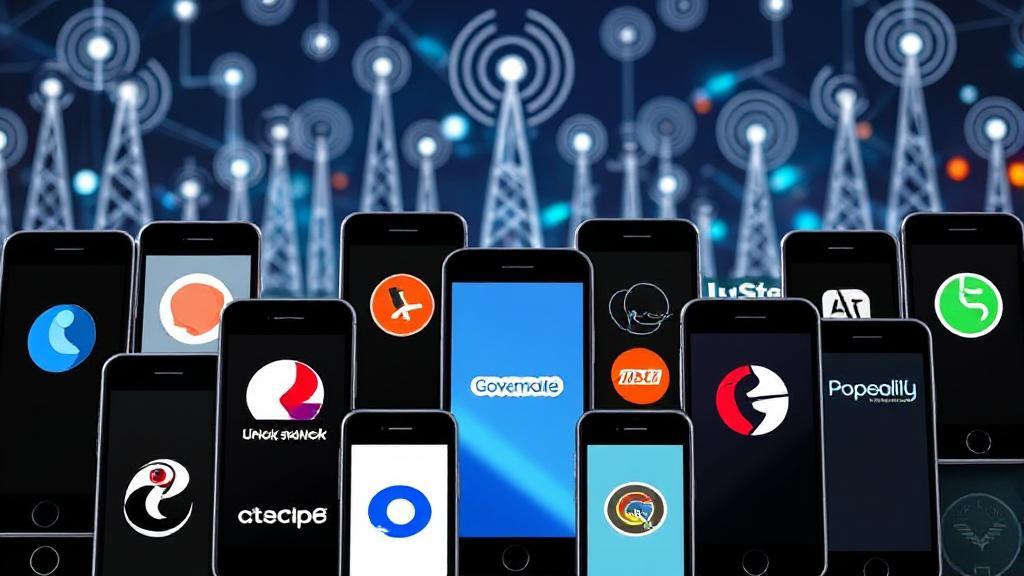Understanding Your Needs
Before selecting a carrier, it's crucial to understand your requirements:
- Usage Patterns: Are you a heavy data user, or do you primarily use your phone for calls and texts?
- Coverage Area: Do you live in a rural area, or do you frequently travel?
- Budget: How much are you willing to spend monthly on your phone plan?
- Additional Features: Do you need international calling, or are you interested in family plans?
Coverage Should Be Your First Priority
Before considering other factors, check the coverage maps for carriers in your area. The major carriers offer coverage maps on their websites:
Remember that these maps aren't always 100% accurate, so it's worth asking neighbors and colleagues about their experiences.
Types of Carriers
Major Carriers (MNOs)
The big three network operators own and operate their cellular networks:
Verizon
- Pros: Excellent coverage, reliable service, strong network performance
- Cons: Higher cost compared to other carriers
AT&T
- Pros: Good coverage, competitive pricing, additional perks
- Cons: Customer service can be hit or miss
T-Mobile
- Pros: Affordable plans, strong 5G network, excellent customer service
- Cons: Coverage in rural areas can be lacking
MVNOs (Mobile Virtual Network Operators)
These carriers lease network access from the major carriers, often offering lower prices:
- Mint Mobile (T-Mobile network)
- Cricket Wireless (AT&T network)
- Visible (Verizon network)
Key Factors to Consider
Network Performance
Look for:
- Download/upload speeds
- Latency
- 5G availability
- Network congestion during peak hours
Plans and Pricing
Compare monthly costs while considering:
- Data allowances
- Number of lines needed
- Additional fees and taxes
- Contract requirements
Hidden Costs to Watch For
Special Considerations
Family Plans
Family plans often provide the best value per line. Consider:
- Number of lines needed
- Data sharing options
- Parental controls
- Additional perks for multiple lines
International Usage
If you travel internationally, look for:
- International roaming rates
- Countries covered
- Data speeds abroad
- Additional international plan costs
Perks and Extras
Different carriers offer various additional benefits:
- Streaming service subscriptions (like Netflix or Hulu)
- Mobile hotspot data
- Cloud storage
- Device upgrade programs
- Insurance options
Money-Saving Tips
- Wait for promotional periods (especially holidays)
- Consider bringing your own device
- Look for employer or educational discounts
- Compare autopay discounts
- Check for military and senior discounts
Final Recommendations
| If You Want | Consider |
|---|---|
| Best Coverage | Verizon |
| Lowest Price | MVNOs like Mint Mobile |
| Fastest 5G | T-Mobile |
| Business Features | AT&T |
For further research, consider checking out resources like OpenSignal, CNET's guide to choosing a phone carrier, or PCMag's mobile carrier reviews.
